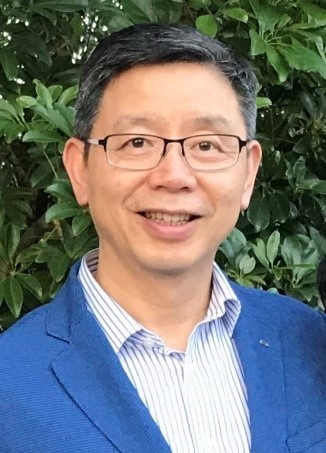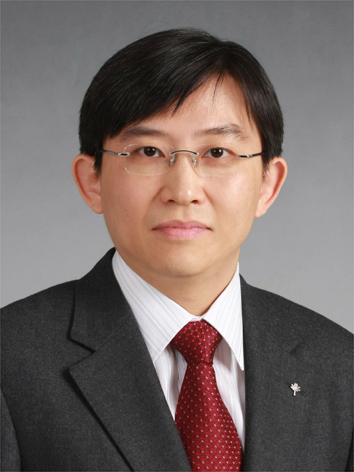Speaker 2022
Keynote Speaker Ⅰ

Prof. Han Huang
Professor of Manufacturing, The University of Queensland, Australia
Talk Title: Additive manufacturing of ceramics based materials
Abstract: The ceramics based materials fabricated using additive manufacturing technologies at the University of Queensland will be introduced. Laser engineering net shaping technologies are developed to fabricate advanced bulk ceramics. The ceramics being fabricated exhibit a refined eutectic structure, a near full density, and excellent mechanical properties and fracture toughness. The mechanism of interaction between laser melting and the resultant mechanical properties and surface integrity of the fabricated components are discussed. Using laser cladding ceramics composite coatings are successfully fabricated on Ti alloy substrates. The unique ceramic coatings have a much higher hardness than the base alloy, and the wear resistance of the coating/substrate system is substantially improved. The strong adhesion between coating and substrate is attributed to the improved performance of the coating/substrate system.
Biography: Han Huang is Professor of Manufacturing at The University of Queensland, Australia. He leads a group of researchers, working on advanced manufacturing technologies. Prof Huang obtained his Bachelor and Master's Degrees at Huazhong University of Science and Technology in China and PhD at University of Western Australia. He worked in Singapore Institute of Manufacturing Technology, developing robotic grinding technologies for aerospace industries, for which he received the prestigious National Technology Award. He also received several research accolades in Australia including ARC Future Fellow, ARC Australia Research Fellow and Queensland International Fellow. Prof Huang has published over 300 refereed journal papers. He is an Associate Editor of International Journal of Mechanical Science, and has editorial roles in several top manufacturing journals.
Keynote Speaker Ⅱ

Prof. Dimitris Mourtzis
Laboratory for Manufacturing Systems and Automation,
University of Patras, Greece
Talk Title: Integrating Artificial Intelligence in 3D Printing towards Digital Manufacturing 4.0
Abstract: Over the last decade, Industry 4.0 has focused more on digitalization and AI-driven technologies for improving the efficiency and flexibility of production. Existing structures and processes in the manufacturing industry are reaching their limits in terms of flexibility, the feasibility of complex parts, and product customization. However, 3D printing offers a comprehensive, intelligent, and digitally optimized solution to these challenges. Due to the ability to fabricate parts with complex features, Additive Manufacturing (AM), also known as 3D printing, is rapidly gaining traction in the manufacturing industry. The researchers have focused on the reliability of 3D printed parts in order to realize AM as an end-part production tool. Thus, Industry 4.0 pillar technologies such as Machine learning (ML) has been used in various aspects of AM to improve the overall design, the manufacturability of design as well as for improving manufacturing process parameters, particularly in the industrial era. 4.0. Therefore, in this keynote talk various types of ML techniques are first introduced. Then, the discussion progresses on their implementation in various aspects of AM, including 3D printing design, material tuning, process optimization, in situ monitoring, cloud service, and cyber-security.
Biography: Dimitris Mourtzis is a Professor in the Department of Mechanical Engineering and Aeronautics of the University of Patras, Vice President of Research and Development of University of Patras, Governing Board Member of the University of Patras at the Clean Aviation Joint Undertaking representing the European Academia and Director of Laboratory for Manufacturing Systems and Automation.
He is a Fellow of the International Academy for Production Engineering (CIRP), the International Federation of Automatic Control (IFAC) Manufacturing Modelling for Management and Control (IFAC TC5.2), the International Federation of Information Processing (IFIP WG 5.7).
He is member of numerous scientific associations including the American Society of Mechanical Engineers (ASME), the Society of Manufacturing Engineers (SME), the Presidential Board of the International Association of Learning Factories (IALF) and the Scientific Committee of the IALF, the European Factories of the Future Association (EFFRA), the European Manufacturing and Innovation Research Association (EMIRACLE), the European Aeronautics Science Network / Association EASN and others.
His scientific interests focus on the Design, Planning and Control of Manufacturing Systems and Networks, Robotic Systems, Automation, Augmented, Mixed, and Virtual Reality in Manufacturing, and Manufacturing Processes Modelling and Energy Efficiency. Furthermore, his research interests are also focused on the design, development and implementation of solutions based on the utilization of cutting-edge digital technologies, such as Cloud Technologies, as well as on the development of Product-Service Systems (PSS). He is also actively involved in the Digital Transformation of Manufacturing Companies and Implementation of Industry 4.0 practices. He has published more than 290 publications including refereed journal papers, editorials, book chapters and conference proceedings with a total number of more than 10.000 unique citations (h-index 52). He is also Member of the Editorial Board of several Scopus Indexed International Journals, Guest Editor in a number of Special Issues and Author/Editor of one Book published by Elsevier.
Keynote Speaker Ⅲ

Prof. Sang Ouk Kim
Materials Science & Engineering, KAIST, Daejeon, Republic of Korea
Talk Title: 2D Materials for Real-World Applications: Graphene Oxide Liquid Crystal & Single Atom Catalyst
Abstract: Following the early day scientific research efforts to understand the interesting structures and properties of 2D materials, such as graphene, their chemically modified forms are attracting a great deal of research attention nowadays, particuarly aiming at real-world applications. Among several different chemically modified derivaties of graphene, graphene oxide liquid crystal (GOLC) is a well-established 2D carbon based soft material system, which exhibits nematic type colloidal discotic liquid crystallinity with the orientational ordering of graphene oxide flakes in good solvents, including water. Since our first discovery of GOLC in the aqueous dispersion at 2009, this interesting mesophase has been utilized over world-wide for many different application fields, such as liquid crystalline graphene fiber spinning, highly ordered graphene membrane/films for water purification, 3D graphene assembled structures for energy & environmental applications, prototype liquid crystal display and so on. This presentation will introduce our current status of GOLC research, focusing on the nanoscale assembly of functional nanostructures. Besides, relevant research works associated to the nanoscale assembly and chemical modification of various low dimensional materials, including 2D TMDs and MXene, will also be introduced. In the last part of presentaation, our first discovery of single atom catalyst (SAC) will be highlighted. Metallic or non-metallic single atom level heteroelement dopants can be stabilized in the 2D plane & edge of graphene based structdures, such as N-doped carbon nantobues and nanoribbons, and offers interesting catalyst behaviors. The ultimate atomic level utilization of catalytic sites as well as peculiar novel catalytic performance of SAC opens up unprecedented opportunity for energy & environmental applications.
Biography: Prof. Kim attained his Ph.D. in 2000 from the Department of Chemical Engineering at KAIST and joined the Department of Materials Science & Engineering of KAIST as a professor in 2004. His main research interest is the directed self-assembly of soft materials, including block copolymers and 2D nanomaterials such as graphene oxide aiming at the practical utilization of the resultant nanostructures for electronics, energy, environmental and biological applications. Noticeably, he has pioneered the extension of molecular level self-assembly principle, previously mostly associated to biomolecules or polymers, for the general material fabrication methodologies based on various nanomaterials with molecular level precision. One of the prof. Kim’s well-known research achievements is the world-first discovery of graphene oxide liquid crystal. Since this original contribution, graphene based material fabrication has been rapidly advanced and approaching real-world applications in the form of 1D fibres, 2D films, and 3D nanoassmbled structures. Significantly, graphene oxide liquid crystal offers a valuable precursor state for the mass-production of sub-5 layer level high quality graphene powders. His contribution in materials research has been widely appreciated by prestigious honours, including the youngest fellow of the Korea Academy of Science and Technology (2020), Highly Cited Researcher from Clarivate Analytics (2018), the KAIST Grand Prize for Academic Excellence (2015) and Presidential Young Scientist Award (2013).